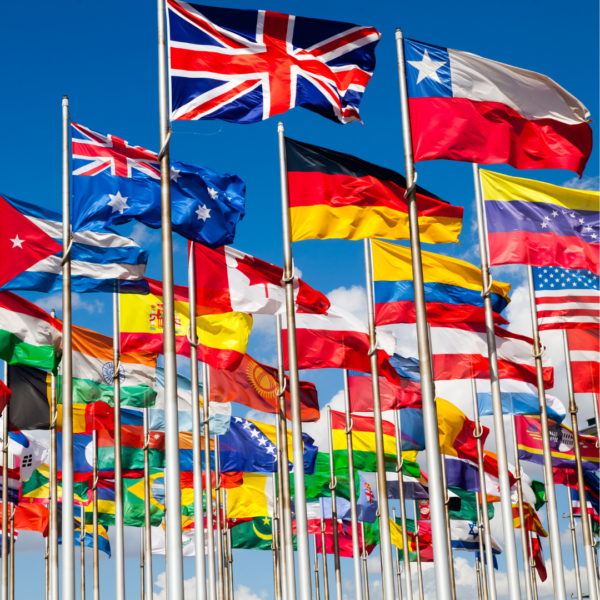2022 Declaration: a Chance to Enhance Environmental Rule of Law in the Process of Achieving Sustainable Development Objectives and Goals
Reading time : 5 minutesEnvironmental rule of law and sustainable development are undoubtedly the two most significant terms operating in the contemporary environmental-legal sphere. The first describes when environmental requirements and environmental rules are respected and enforced. The second aims at a balance between economic growth, people’s welfare, and environmental protection. There is no doubt that these two issues are interconnected. The 2022 Declaration was an occasion to underline and enhance the significance of the environmental rule of law in the sustainable development process. Notably, the 2019 First Global Report on the Environmental Rule of Law stressed the existing gaps between requirements of environmental norms and their implementation. The report underlines that the enforcement of the environmental rule of law benefits equally environmental protection and socio-economic development.

1/ Although the concept of environmental rule of law is relatively new in the doctrine of environmental law, it has already contributed to the development of standards of emerging sustainable development law. Its genesis can be traced in the UNEP Governing Body Decision 27/9 on Advancing Justice, Governance and Law for the Environmental Sustainability which refers to the growing significance of the rule of law in the context of socio-economic development in the process of achieving the objectives and goals of sustainable development.
The term environmental rule of law refers to the environmental-legal space of the general notion of the term “rule of law.” In the light of environmental conservation and protection, it describes basic requirements, such as ensuring adherence to the principles of supremacy of law, equality before the law, accountability to the law, fairness in the application of the law, separation of powers, participation in decision-making, legal certainty, avoidance of arbitrariness, and procedural and legal transparency in the field of the environment. These standards help societies experiencing social and economic consequences of environmental degradation, overcome multifarious costs resulting from development, which does not respect environmental requirements and therefore hamper the process of achieving sustainable development objectives. In this context, the environmental rule of law should be perceived as a new paradigm at all levels of environmental governance, decision-making, and justice.
One can say that the environmental rule of law reflects universal values of modern society providing the foundation for environmental rights and duties, and forms one of the most important pillars of environmental governance and justice constituting the legal basis for achieving sustainable development goals. As it has been rightly pointed out in the International Union for Conservation of Nature World Declaration on the Environmental Rule of Law of 2016, without the environmental rule of law, environmental governance, conservation, and protection may be arbitrary subjective, and unpredictable.[3] Therefore, the principle of the environmental rule of law should be considered as a basis before adopting any document and acting on environmental policy and law.
2/ Environmental rule of law describes the legal standards, which depend on decisions often made under conditions of significant scientific uncertainty, that are generally understood, implemented and enforced. Therefore, in the multi-level governance of the global environment, particular attention should be paid to principles of environmental law ensuring effective implementation of environmental standards. Respecting principles such as the precautionary principle would enlarge perspectives for enforcement of environmental standards adopted under the above-mentioned circumstances of scientific uncertainty. It is worth reminding the Eco-Oro case (ICSID Case No.ARB/16/41), the Tribunal decided that the precautionary principle helping decision-making in times of uncertainty may be applicable as a rule of law.
The practice of international relations shows that unsustainable development ignoring environmental requirements may be mitigated by the standards of environmental rule of law, which by their nature, play a fundamental role in the protection of individual and collective intragenerational and intergenerational aspirations and interests. Environmental rule of law is crucial in solving potential conflicts between contemporary beneficiaries of common good (which is the environment when it comes to exercising rights) and fulfilling obligations to present and future generations. The Supreme Court of the Philippines ruled in the Oposa Minores case that the plaintiffs had the locus standi to sue on behalf of future generation, based on the intergenerational responsibility of future generations’ rights to a healthy environment. The effectiveness of this approach had also been further proven by the judgment of the Hague District Court in the Urgenda case.
Special attention should be paid to the application status of principles such as do-no-harm, due diligence or non-regression, keeping in mind that the stringent enforcement of environmental regulations should be based on the environmental impact assessment mechanisms. In this context, it is important to note the discussion underway on the so-called anti-degradation concept in the approach to environmental lawmaking. The anti-degradation approach would mean that new international negotiations could be launched in the key sectors of environmental protection, such as air protection, transport, climate change mitigation, water resources protection, trade in wild animals, and other vitals for the attainment of sustainable development objectives.
Legal and practical measures to increase transparency, strengthen access to information and enhance public participation in the environmental decision-making processes will allow equality in terms of environmental protection while achieving sustainable development objectives, goals, and targets.
Maria Magdalena Kenig-Witkowska Tweet
3/ The First Global Report on Environmental Rule of Law points out the benefits of environmental protection in the process of socio-economic development, and provides framework standards for addressing the gap between theory and practice of environmental law. The Report underlines that the rule of law supports the sustainable development process serving as a platform for balancing the tree-pillars for sustainable development i.e. environmental, economic and social. The assumptions resulting from the Report give a prospect on the nature and type of legal actions to be undertaken in the processes of achieving sustainable development objectives. The conclusion is that all decisions on legal measures for the implementation of sustainable development objectives and goals should be taken from the perspective of environmental rule of law, considered as conditio sine qua non.
The Report highlights the fact that environmental rule of law is particularly vital for the process of achieving the seventeen UN Sustainable Development Goals and 169 targets. It also underlines that environmental rule of law and sustainable development are mutually reinforced only to mention the goal 16 (Peace, Justice and Strong Institutions); goal 14 (life below water); and targets 9 c, 12.8 (access to information). There are still many problems that must be solved to improve the effectiveness of the Report expectations. One of the fundamental challenges is how to measure the aspects of environmental rule of law, the quality of laws, the effectiveness of institution compliance rate, since the environmental standards often result from the decision-making processes undertaken in circumstances of scientific uncertainty. In this context, it is worth mentioning the IUCN Declaration on the Environmental Rule of Law of 2016, which lists key elements of governance, general and emerging substantive principles pertaining to environmental justice, and means of implementation of the environmental rule of law. Legal and practical measures to increase transparency, strengthen access to information and enhance public participation in the environmental decision-making processes will allow equality in terms of environmental protection while achieving sustainable development objectives, goals, and targets.
Enhancing the principle of environmental rule of law provides a unique mechanism to ensure that the realization of sustainable development is on the proper track.
Maria Magdalena Kenig-Witkowska Tweet
As shown by ongoing international practice of international relations, States are generally committed to international norms and standards of environmental rule of law, on international and national levels. The political expression of this state of the art is a large number of international treaties and acts of soft law, such as declarations of principles and guidelines of conduct, which prove that the international community has adopted the paradigm of environmental protection and preservation in the processes of socio-economic development. Still, one of the fundamental problems that needs to be solved and a serious challenge for the international community, is the issue of implementation and compliance with these environmental requirements. Enhancing the principle of environmental rule of law provides a unique mechanism to ensure that the realization of sustainable development is on the proper track.
4/ There is no doubt that achieving sustainable development objectives is a global goal. Acceptance of the environmental rule of law should be considered as a conditio sine qua non to attain sustainable development. The practice of international relations has proven that sustainable development can only be achieved through fair, effective and transparent institutions and rule of law. Similarly to the general concept of the rule of law, the idea of an environmental rule of law focuses inter alia on fair, clear and implementable environmental laws; public participation in decision-making; access to justice; access to information; accountability and integrity of institutions and decision-makers; clear and coordinated mandates and roles across and within institutions; accessible, fair and timely dispute resolution mechanisms; recognition of the mutually reinforcing relationship between human rights and environment.

